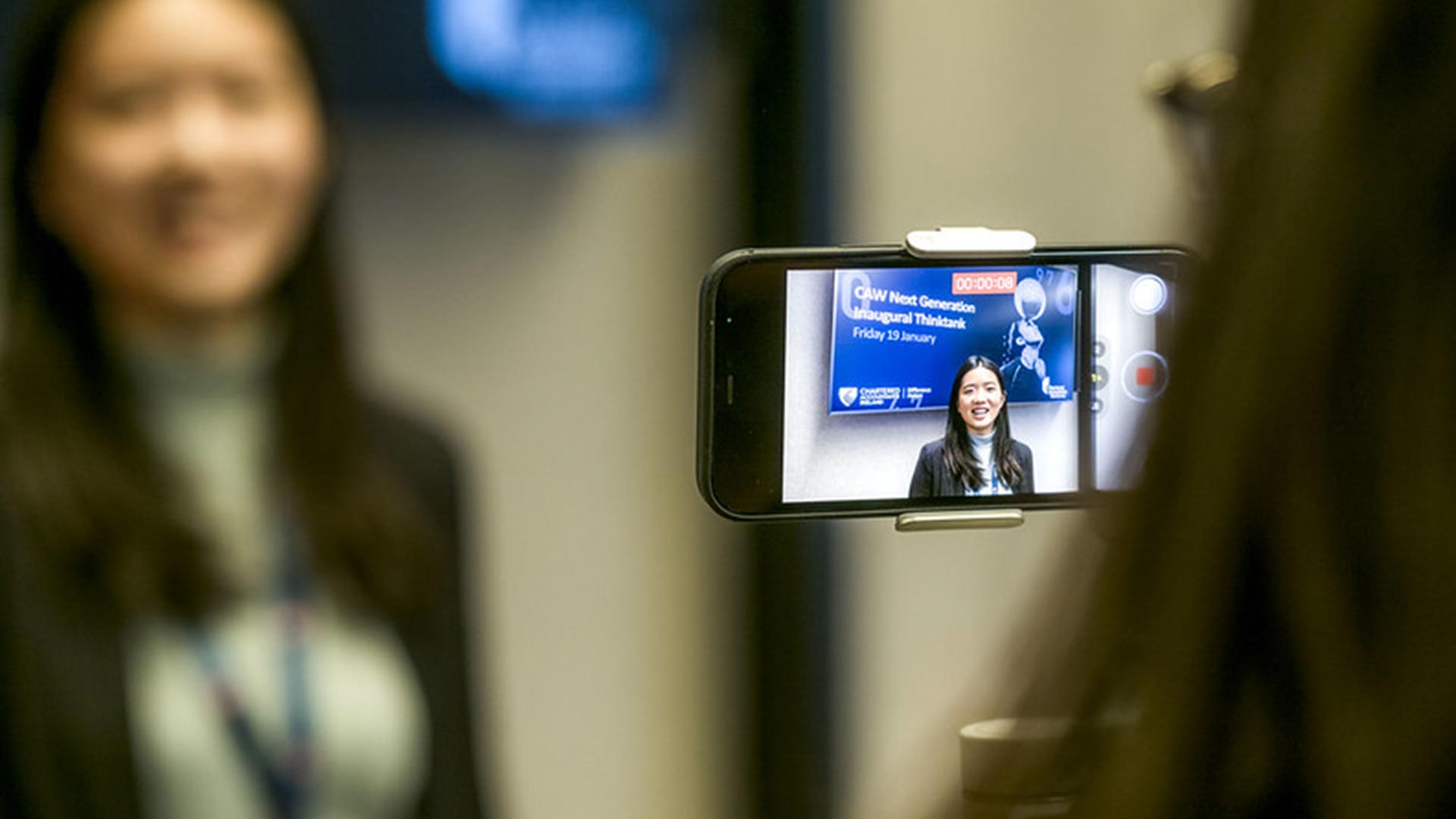Interview: Stewart Langdon CA of LeapFrog Investments

LeapFrog Investments is a world leader in emerging markets, and aims to reach a billion people with its socially impactful businesses. Stewart Langdon CA, partner and Co-Head of its Asia investments, speaks to Kitty Finstad about the benefits of working from a blank sheet
Big numbers come with the territory in accountancy. But measuring their impact can sometimes take a back seat. Not so at LeapFrog Investments.
At the emerging-markets private investment firm, founded in 2007, “profit with purpose” isn’t just some platitude rolled out for stakeholders.
Measuring the positive social impact of those investments takes equal priority. Stewart Langdon has been watching LeapFrog’s big numbers get bigger since 2010, when he joined the then fledgling firm after stints at EY in London and Rothschild in London and Dubai.
Now partner and Co-Head of Asia investments, Edinburgh based Langdon has watched LeapFrog’s assets under management grow from $135m (£108m) to $1.5bn.
Now recognised as world leaders in impact investing (ranked by Fortune as one of the top five companies changing the world), LeapFrog’s portfolio companies collectively reach 164 million low-income people, and 200 million in total. Its goal? To reach a billion.
Langdon recalls being aware of LeapFrog when he was working in Dubai. “At that time, people were just beginning to talk about social impact investing,” he says. “Now you can barely pick up a magazine without seeing an article about a socially impactful business or ESG. Back then it was quite a new concept and I was interested in different business models that could help to reduce poverty. Having spent so much time working in Asia, I’d seen first-hand the impact of mobile telephony – which had gone from being something nobody had to something even very low-income people had access to – and how that was transforming lives on a large scale.”
Some of LeapFrog’s most successful investments are companies based on mobile technology.
Beyond recognising big transformational opportunities, what makes LeapFrog different from other purpose-driven investment companies is threefold. First, says Langdon, is focus.
“We’ve never had the idea that we would be a social impact fund that’s trying to solve every problem in the world. We invest in businesses that provide essential services to low-income people around the world. And we believe that if low-income people have access to healthcare, financial services, then over time that will help to lift them out of poverty. We specialise in businesses that do that, and that’s a very intellectually coherent thesis to have in impact investing.”
Second – but no less important – is measurement. “We’ve always taken reporting social impact numbers just as seriously as we take reporting financial data, and we don’t compromise. Often with social impact investing, you’ll find people say, ‘This is social impact, so we don’t need to deliver the same financial returns.’ We don’t have that view at all. We think you can build big businesses on a completely commercial basis that serve the world’s poor, and we think you should measure quarterly social impact in the same way as financial impact. Measurement has always been very important to us.”
Walking that talk, LeapFrog has developed a proprietary measurement framework, FIIRM, which integrates quarterly reporting on financial and social impact, innovation and risk management factors, alongside measurement of KPIs and governance indices – all benchmarked against global best-practice standards.
“Every quarter, each company reports on how many low-income people they are reaching with products, and for each product they provide certain metrics around quality, relevance and affordability,” Langdon explains “So for every company, every quarter, I can look and say, ‘They’ve reached two million people and the average price of product is X, so we know it’s affordable. The renewal rate is Y, so we know the customer feels it’s relevant to them.’”
It’s a simplified explanation of a multi-faceted process, but by undertaking it every quarter in a rigorous way, LeapFrog both complies with global standards and ensures it never strays from its impact-focused strategy.
Success stories
One of LeapFrog’s big success stories is BIMA, a low-cost mobile health and insurance provider operating in Africa and Asia. “The problem we were trying to solve was around insurance, which people don’t find all that sexy to talk about!” says Langdon.
“But the lack of insurance in the developing world is a major contributor to poverty, because it means people have very little ability to pool risk. If a family breadwinner dies and they don’t have life insurance, or if somebody has a critical health event where they have to go to hospital and then have a period of loss of income… all these things are catastrophic financial events for people on low incomes.
“BIMA had a very good idea around partnering with mobile operators to sell very low-cost insurance services across lots of different markets in Asia and Africa. Today they’re in nine markets and have around five million customers. In some instances they’ve reduced insurance premiums to as low as 30c, or up to $1–$2 a month.
“This is very valuable to people – it means they’re able to make a claim if they have a negative life event. It’s a great example of a business that has brought down the cost of an essential service for low-income people and has grown successfully as a result. In these markets investors have the opportunity to reinvent things. It’s a very different world from the West, where we’re used to large incumbents that you have to disrupt. In Africa and Asia, it’s a blank sheet of paper with huge technological tailwinds.”
Another LeapFrog success story is WorldRemit, an online money transfer service frequently used by migrant workers to send money back to their families.
“It’s a really interesting sector,” says Langdon, “because if you look at that flow of remittances every year, it’s worth something like three times the global aid budget. And to the families at the receiving end, it’s an incredibly important source of income. For years, migrant workers were being charged way too much for a very slow, unreliable service.
“WorldRemit worked out how to use digital technology to change that. Now people can just go online or onto an app on their phone and send money back to their families at a much lower cost than they were previously able to. The business has grown quickly and now has around three million customers – it’s an incredible success story.
“It was started by Ismail Ahmed, a Somali refugee who fled the civil war in the 1980s and came to the UK as a migrant worker. I think he started off picking fruit. He was fed up with the traditional remittance companies – he felt they were too expensive, and he got sick of having to take the bus for an hour just to send some money home. So he thought about how it could be done better. He’s a real social impact hero.”
On the road
For Langdon, working with world-changing business leaders in emerging markets is a hugely satisfying aspect of the job.
“I spend about half my time on the road in these markets – India, Indonesia – meeting companies that we’re considering investing in. Meeting the management teams, hearing their stories, and looking at the data to figure out if it’s a good investment… that, by a mile, is the best part of the job. I also spend time with companies we’ve already invested in, at board meetings or meeting management teams, to monitor performance or think about what else we can do to help them. And the rest of my time is spent talking to investors about what’s going on in the portfolio. My role is quite varied, and I love meeting – physically or virtually – with management teams to talk about how they’re growing their business.”
This holistic view has its roots in Langdon’s ICAS training.
“You get such strong training in the CA programme – about how numbers reflect what’s going on in a company and understanding financial performance in a really deep way. I remember when I was doing audits [at EY] in the early days – we used to be in a different finance department every few weeks. You have to understand the numbers, but you also have to go in and get on well with different groups of people. You have to become good at dealing with individuals and also at teamship. There’s something about the ICAS training that’s really grounded. You come out of it quite humble, quite easy to work with.”
These are qualities that no doubt proved useful when Langdon joined the Asia Scotland Institute in 2013.
“I’d spent a lot of time working in Asia, and could see GDP in Asia had gone from being 20% of the [global] total in 2000 to being 40% today. If you look forward to 2050, it’s predicted it will be more than half. I could see Asia was becoming more and more important and that posed real challenges for Scotland. We’re not geographically well located to build ties with Asian countries. We don’t have many direct flights to China and India, for example. A lot of people in Scotland see Asia as quite exotic, quite far away, not part of their field of vision in terms of markets. But these are some of the world’s fastest-growing economies and their diplomatic and military influence grows with that.”
“What I’ve found fascinating about Covid-19 is it’s shot down the argument that this is no longer the Asian century because economic growth there had fallen a bit. Instead, the crisis has highlighted just how important Asia’s going to be in a globalised world, regardless of whether it’s growing quickly or not. The idea behind the Asia Scotland Institute is to help people in Scotland better understand what’s going on in Asia, to build stronger links. And hopefully that will help Scotland’s economy to flourish.”
Stewart Langdon’s Career
- Education: Studied law at Aberdeen University
- 2000: Joins EY as executive in audit team
- 2003: Qualifies as CA
- 2004: Joins NM Rothschild & Sons working as investment banking and capital markets advisory
- 2007: Moves to Dubai with Rothschild
- 2010: Joins LeapFrog as Co-Head of Asia Investments and relocates to Edinburgh
- 2013: Appointed trustee of the Asia Scotland Institute
- 2018: Receives Business Insider’s Dealmaker of the Year award
This article first appeared in the June 2020 issue of CA magazine: https://www.icas.com/members/ca-magazine/ca-magazine-articles/interview-stuart-langdon-ca-of-leapfrog-investments












